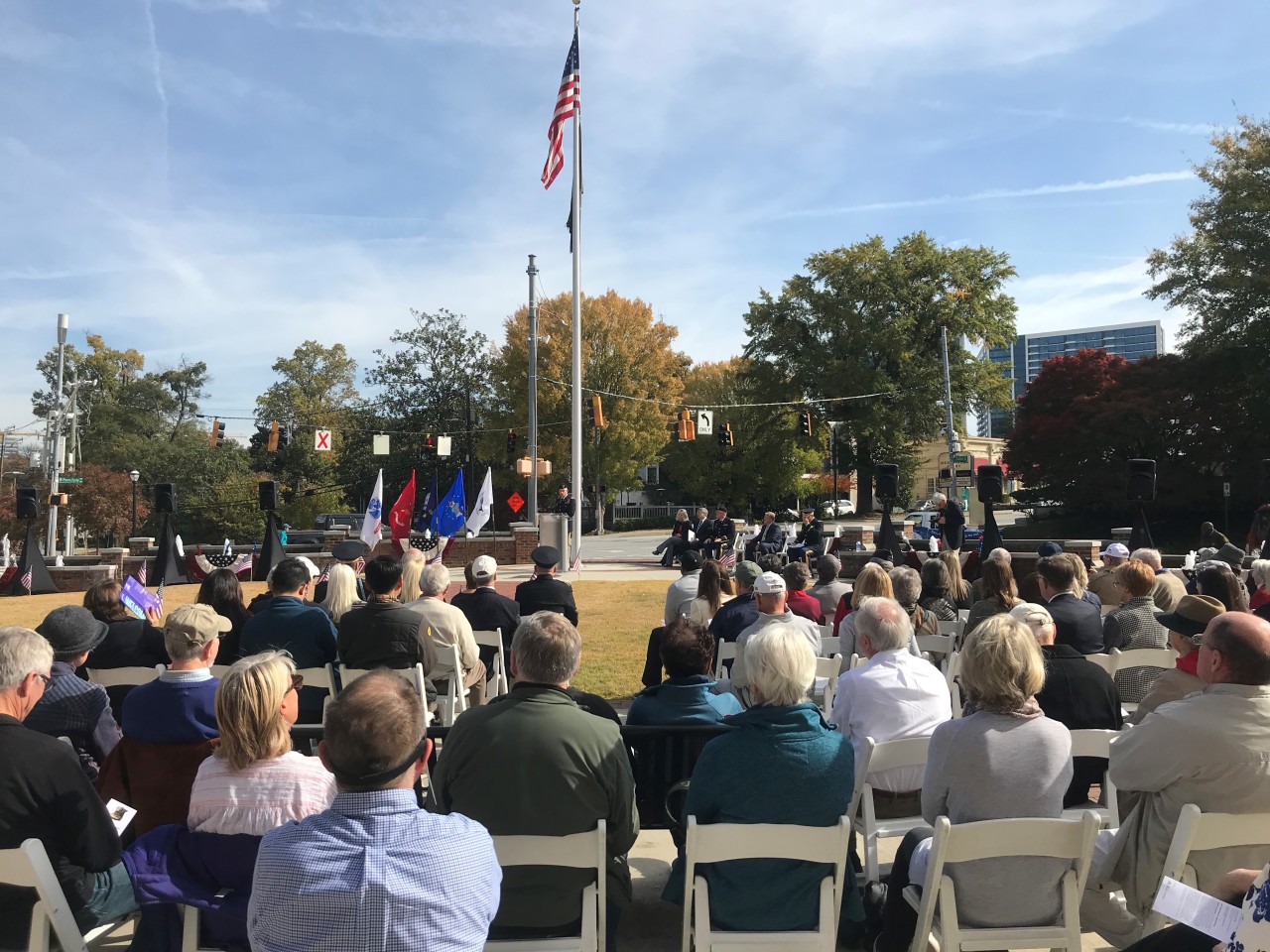Challenges Facing Military Veterans Often Heightened For Women

The Atlanta History Center held a Veterans Day commemoration ceremony on Monday morning.
Emil Moffatt / WABE
Military veterans often face challenges after they leave the service. Finding a fulfilling job and access to health care can be problematic.
Those obstacles can be more pronounced for female veterans.
“Everybody needs something a little bit different,” Wendi Carpenter, a 34-year veteran of the U.S. Navy, said. “Sometimes guys need a job; sometimes they need a little encouragement. Our women veterans are a distinct group because, many times, they’re not even well accepted in some of the units.”
During her career in the military, Carpenter became the first female aviator to earn the rank of admiral in the U.S. Navy.
She now lives in Atlanta and was the keynote speaker at a Veterans Day event at the Atlanta History Center.
Carpenter said she was fortunate that she had mentors who supported her. But that isn’t always the case. She said women still often face discrimination while they’re in the service and afterward, too.
“Very often, women veterans actually have more education or have finished at higher rank, but yet they have a higher unemployment rate than some of the men,” Carpenter said.
The unemployment rate disparity among men and women often fluctuates month by month, according to statistics from the Labor Bureau. Sometimes the unemployment rate is higher for women, sometimes it’s higher for men.
But it’s not just finding a job. Carpenter said it was only recently that Veterans Affairs began efforts to improve women’s health care at its facilities.
The physical and mental toll of active duty service makes medical care that much more important.
“Veterans are very resilient,” said Carpenter. “People in the service are very resilient. We’re trained to be resilient. But sometimes that resiliency breaks down, and you don’t know how to go ask for help.”








